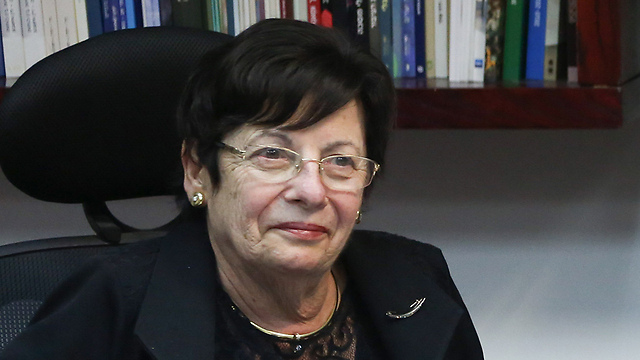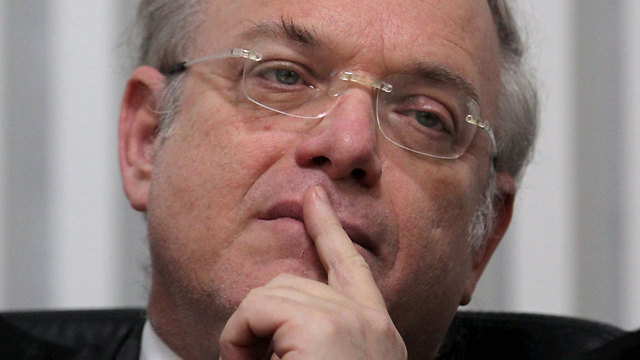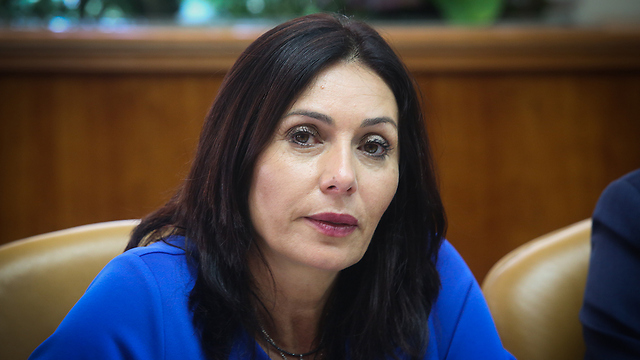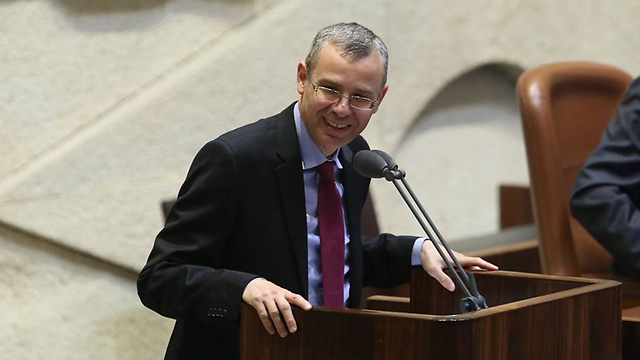

Outrage over Supreme Court snub of settlement ceremony
Chief Justice Naor decides against judiciary participation in ceremony commemorating golden jubilee of Jewish settlement in West Bank, Golan Heights, citing its 'political, controversial' nature; Regev: 'Decision casts stain on judiciary'; Shaked: 'Naor sought to avoid political dispute, but missed her goal.'
A decision by outgoing Supreme Court Chief Justice Miriam Naor not to have a representative of the judicial authority attend a state ceremony Wednesday commemorating 50 years of Jewish settlement in the West Bank has caused political uproar.
The ceremony will be held Wednesday evening in Gush Etzion, and attended by Prime Minister Benjamin Netanyahu, Knesset Speaker Yuli Edelstein, Minister of Education Naftali Bennett and Minister of Culture Miri Regev.
Several weeks ago, Naor received a request to attend an event marking "Golden jubilee celebration for the freeing of Judea, Samaria, the Jordan Valley and the Golan Heights."
Justice Neal Hendel was originally asked by Naor to represent the judicial authority at the event, but a petition from Meretz MK Issawi Frej made the chief justice reconsider and decide "no judiciary representative will participate in the event."
Chief Justice Naor further elaborated on the decision Wednesday morning. "The event is a matter of public controversy. Therefore, and without the chief justice or any other justice expressing their opinion on the matter, Chief Justice Naor decided it would be inappropriate for the judiciary to participate," a statement from her office said.
It was further stated ethics rules stipulate representatives of the judiciary will not participate in an event with political or party undertones. Naor's office added the judiciary will continue participating in state ceremonies, but abstain from controversial ones, especially a ceremony with "only one side receiving the platform."
Frej welcomed the decision. "I wish to thank the Supreme Court justices for making the right decision. This is a controversial political event, and Justice Hendel's attendance would harm the trust a large portion of Israeli society places in the Supreme Court. The court should deal with jurisprudence, not politics. That is the way it has always been and should continue to be," he said.
But the about-face prompted derision and criticism from government officials. The minister responsible for the ceremony, Miri Regev, sent a harshly-worded letter to Attorney General Avichai Mandelblit criticizing the chief justice's conduct.
"Pursuant to the relevant government decisions and accepted Israeli protocol, the judiciary was invited to attend in a missive sent to the office of the Supreme Court Chief Justice. All of the information pertaining to the ceremony, including the fact it was a state ceremony, its title and its location, was sent to Naor's office as it was sent to the other officials invited to the ceremony," Regev's letter claimed.
Regev further claimed her ministry only found out about Naor's decision when it learned about her response to Frej.
"As the minister tasked by the government to oversee these matters, I consider the chief justice's conduct and decision on the matter to be reprehensible. This overt abstention harms the State of Israel," she stated.
Regev then demanded Naor reverse her position, or else her decision will "place an anti-stately stain on the Supreme Court."
Justice Minister Ayelet Shaked was also incensed by Naor's agreement, telling the chief justice in a letter that "In your announcement, you've undone the stateliness of an official ceremony decided on by the government, and created the false impression that this was an event with political undertones."
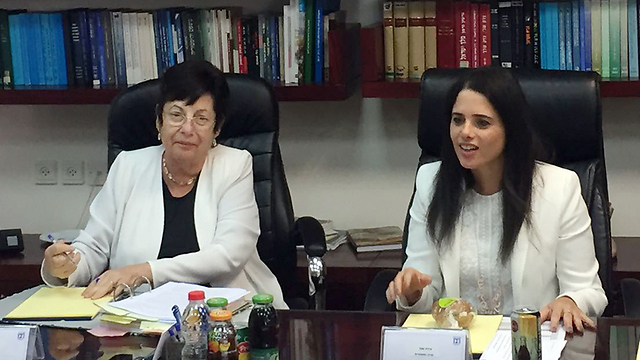
Shaked went on to say that "Even though you sought to avoid a political dispute, your goal was missed. The Movement for Quality Government was right in its letter to you today when it said 'this could play into the hands of those who wish to portray the court as a player in the political field.'"
Minister of Tourism Yariv Levin also strongly objected to Naor's decision. "This is an outrage. Chief justices are not personally invited but a representative for the judiciary was asked to attend a state ceremony. It's unheard of for judges to decide which ceremony to attend and which to skip," he protested.
"Tomorrow, someone will say a ceremony for the Kibbutz Movement is also controversial because certain people in the 'Mizrahi Democratic Rainbow Coalition' think otherwise. I think this proves just one thing: the judges carry their own personal agendas into the courtroom. The vast majority of Supreme Court judges hold left-wing agendas, which is expressed by their rulings and now by this grave act. They're abandoning their state responsibility," Levin said.
When asked whether he intends to do anything about Naor's decision, Levin said, "I suggested at the cabinet meeting that if judges find it hard to rise above their personal considerations and act in a stately manner, it seems we have no other recourse except to cancel any judiciary participation in state ceremonies, thereby avoiding future occurrences."
"The judiciary has no voice on the matter. If they want to enter the political field, then I think they leave us little choice but to remove them from standard ceremony protocol," the minister said.
Responding to why such a ceremony was needed in the first place, Levin said, "You could ask that about any ceremony. Some people wonder why a ceremony commemorating this prime minister or that one is needed. The great settlement undertaking houses half a million Israeli citizens and a golden jubilee is an extraordinary date that seems to be worthy of commemoration."
Parties outside the Knesset were also incensed with the decision.
"It never ceases to amaze me how public officials can still be surprised by any of (Naor's) decisions. We've always said that when it comes to the settlements, they don't put out verdicts but make their own law while abusing the high status of a Supreme Court justice to promote an ideological agenda," said head of the Gush Etzion Regional Council, Shlomo Ne'eman.
"Now, more than ever, it's clear they're in violation of their own rules. The justices must decide whether they're a part of the history of the people of Israel returning to their homeland, or a part of the history of the left wing panicking as its reign slips away," he added.
Court rejects petition seeking to cancel event over perceived slight
The High Court of Justice rejected a petition by the Regavim NGO demanding to cancel the event over the absence of a representative from the judicial authority.
In its response to the petition, the State Attorney's Office presented the government's position that "The absence of one invitee or another does not constitute legal cause to cancel the event."
Justice Uri Shoham accepted the state's position, noting there is "no cause for the court to interfere."
"It appears none dispute the fact the status of the Judea and Samaria territories is deeply controversial," Shoham wrote in his ruling.
"The decision not to take part in an event that is controversial in nature and might be viewed as having political undertones is necessary to protect the judicial authority's independence and to maintain public trust in the judicial system," Shoham added, noting the decision was in line with judicial ethics.
 |














